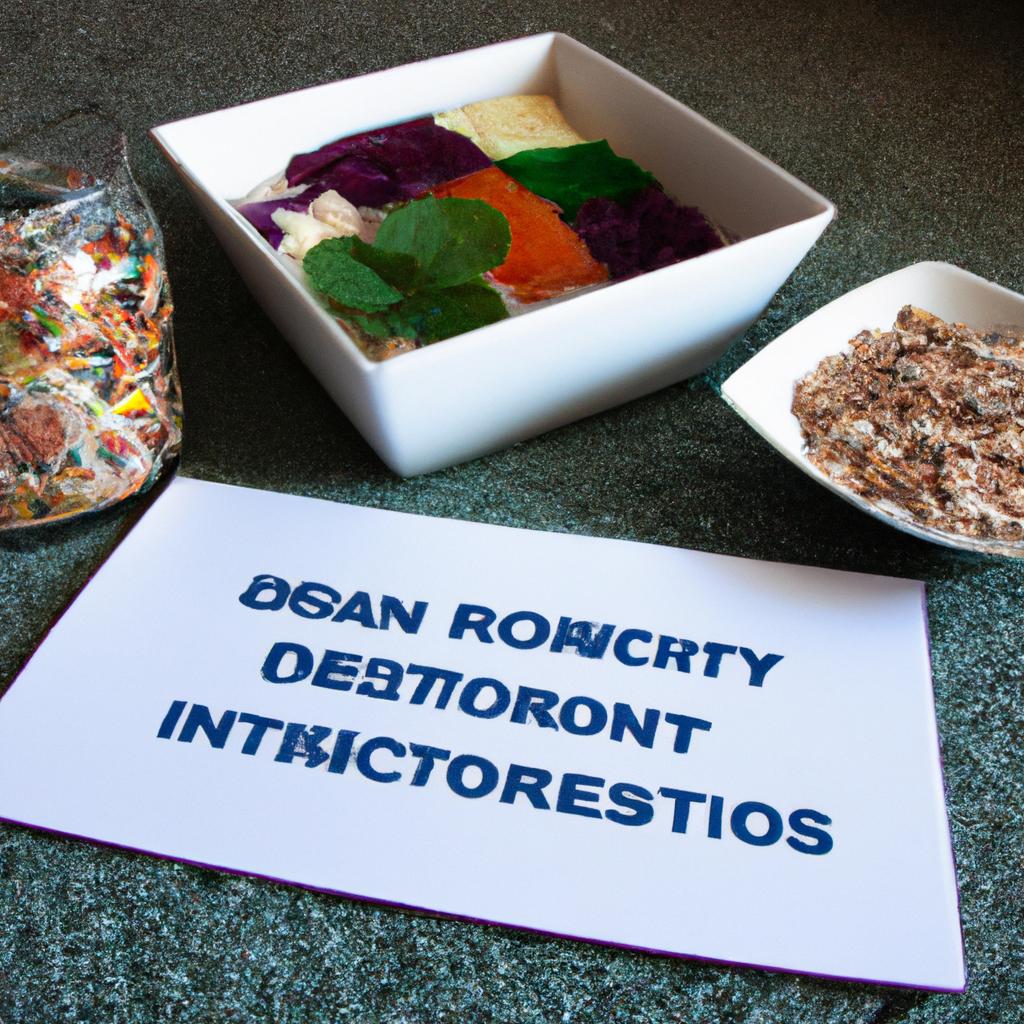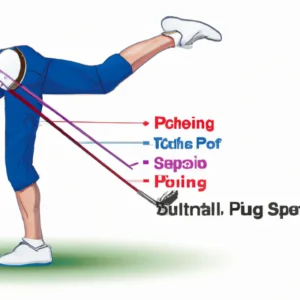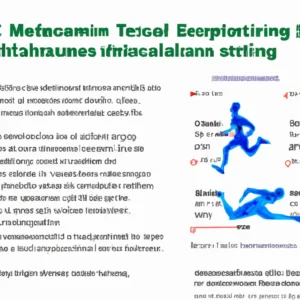**”The Role of Nutritional Strategies in Enhancing Gut Health for Optimized Athletic Performance: Exploring the Connection Between Diet, Microbiome, and Recovery”**
# The Role of Nutritional Strategies in Enhancing Gut Health for Optimized Athletic Performance
As athletes strive to push the boundaries of their physical capabilities, the role of gut health in enhancing performance is becoming increasingly recognized. The complex interplay between diet, the gut microbiome, and recovery is a fascinating area of study that offers valuable insights for athletes looking to optimize their performance. This blog will explore the connection between nutritional strategies and gut health, providing practical tips for athletes to enhance their overall well-being and performance.
## Understanding the Gut Microbiome
The gut microbiome consists of trillions of microorganisms residing in our digestive tracts. These microorganisms play a critical role in digestion, nutrient absorption, and immune function. However, they also influence inflammation, mood, and overall energy levels—factors that are crucial for athletic performance.
### The Link Between Gut Health and Athletic Performance
Research has shown that a healthy gut microbiome can significantly impact an athlete’s performance. A balanced microbiome can enhance nutrient absorption, improve recovery times, and reduce the risk of gastrointestinal issues during training and competition. Furthermore, gut health has been linked to mental well-being, which is essential for maintaining focus and motivation during high-pressure situations.
## Nutrition Tips for Enhancing Gut Health
### 1. Prioritize Whole Foods
Whole foods—fruits, vegetables, whole grains, lean proteins, and healthy fats—are rich in fiber, antioxidants, and essential nutrients that support gut health. Fiber promotes the growth of beneficial bacteria, while antioxidants help reduce inflammation. Consider incorporating a variety of colorful fruits and vegetables into your meals to ensure a diverse nutrient intake.
### 2. Incorporate Fermented Foods
Fermented foods such as yogurt, kefir, sauerkraut, kimchi, and kombucha are excellent sources of probiotics, which are live microorganisms that can confer health benefits. Including these foods in your diet can help balance your gut microbiome and improve digestion. Aim to include a serving of fermented foods daily to reap their benefits.
### 3. Stay Hydrated
Hydration is crucial for optimal digestion and nutrient absorption. Water helps transport nutrients to cells and supports the mucosal lining of the gut. Athletes should aim to drink enough water throughout the day, especially before, during, and after training sessions. Herbal teas and broths can also contribute to hydration.
### 4. Limit Processed Foods and Added Sugars
Processed foods and those high in added sugars can disrupt the balance of the gut microbiome, leading to inflammation and digestive issues. Athletes should aim to minimize their intake of sugary snacks, sodas, and heavily processed meals. Instead, focus on nutrient-dense options that fuel both performance and recovery.
### 5. Experiment with Prebiotics
Prebiotics are non-digestible fibers that feed beneficial gut bacteria. Foods rich in prebiotics include garlic, onions, leeks, asparagus, and bananas. Incorporating these foods into your diet can help promote the growth of healthy gut bacteria, enhancing overall gut health.
## Exercise Advice for Gut Health
### 1. Moderate Exercise
While intense exercise can sometimes lead to gastrointestinal distress, moderate physical activity is beneficial for gut health. Activities like walking, jogging, or cycling can promote gut motility and encourage a healthy microbiome. Implementing regular, moderate workouts can enhance digestion and nutrient absorption.
### 2. Timing of Nutrition
Athletes should consider meal timing in relation to their training sessions. Eating a balanced meal or snack containing carbohydrates and protein 1-3 hours before exercise can provide energy and support recovery. Post-exercise, focus on consuming a meal rich in protein and complex carbohydrates to replenish glycogen stores and promote muscle repair.
## Health Benefits of a Healthy Gut
1. **Improved Nutrient Absorption**: A balanced gut microbiome enhances the absorption of vitamins and minerals, crucial for energy production and muscle recovery.
2. **Enhanced Immune Function**: A healthy gut supports immune health, which is vital for athletes who put their bodies under significant stress.
3. **Reduced Inflammation**: A diet rich in anti-inflammatory foods and probiotics can help reduce muscle soreness and recovery times.
4. **Mental Well-Being**: Gut health is closely linked to mental health; a balanced microbiome can improve mood and cognitive function, leading to better performance under pressure.
## Conclusion
In the quest for optimized athletic performance, the role of nutritional strategies in enhancing gut health cannot be overstated. By prioritizing whole foods, incorporating fermented options, staying hydrated, and managing exercise intensity, athletes can improve their gut microbiome and, consequently, their performance. As the science continues to unfold, it becomes increasingly clear that the connection between diet, gut health, and athletic recovery is a vital piece of the performance puzzle. By paying attention to the gut, athletes can unlock their full potential and enhance their overall health.















Post Comment